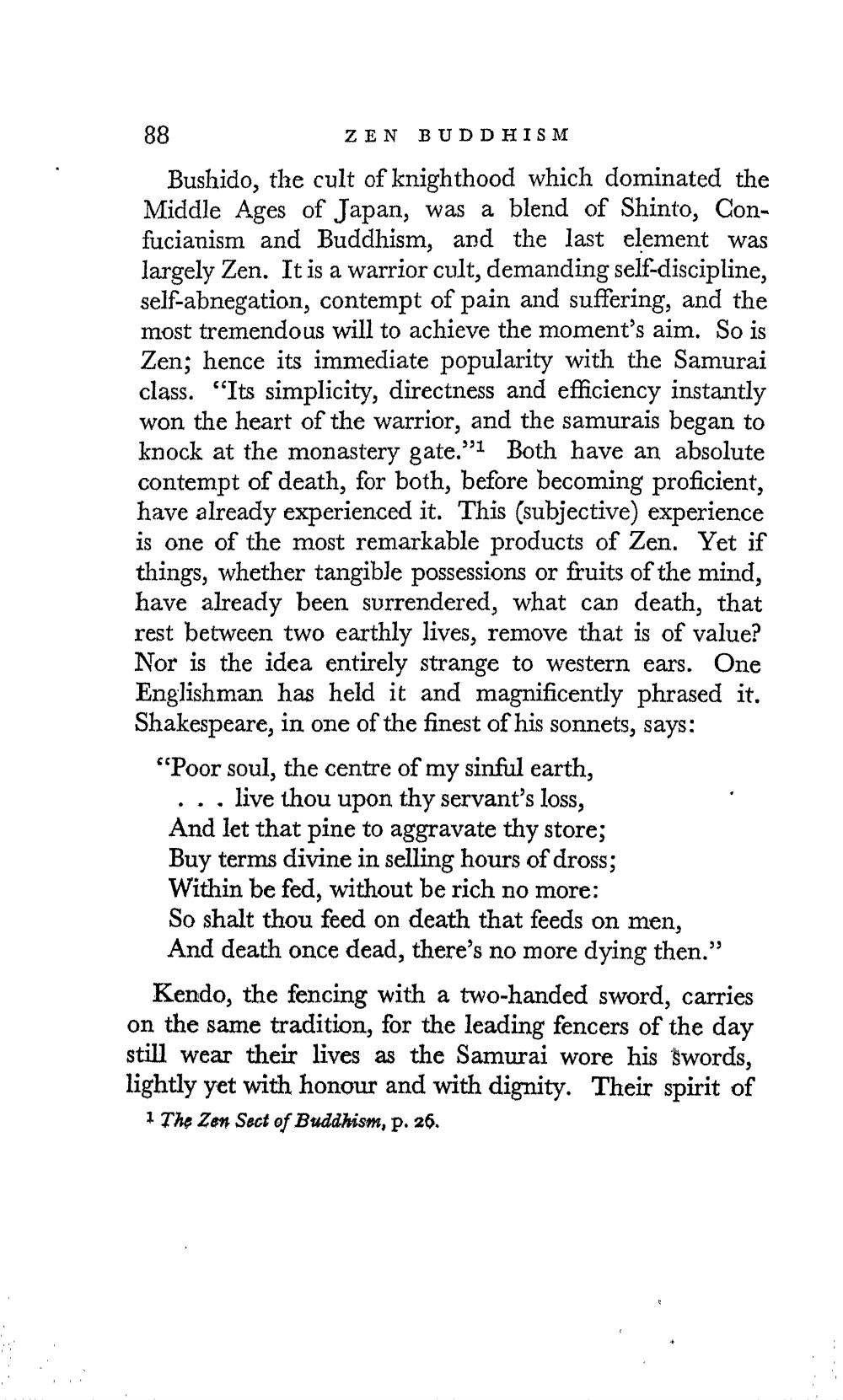________________
88
ZEN BUDDHISM Bushido, the cult of knighthood which dominated the Middle Ages of Japan, was a blend of Shinto, Confucianism and Buddhism, and the last element was largely Zen. It is a warrior cult, demanding self-discipline, self-abnegation, contempt of pain and suffering, and the most tremendous will to achieve the moment's aim. So is Zen; hence its immediate popularity with the Samurai class. "Its simplicity, directness and efficiency instantly won the heart of the warrior, and the samurais began to knock at the monastery gate."1 Both have an absolute contempt of death, for both, before becoming proficient, have already experienced it. This (subjective) experience is one of the most remarkable products of Zen. Yet if things, whether tangible possessions or fruits of the mind, have already been surrendered, what can death, that rest between two earthly lives, remove that is of value? Nor is the idea entirely strange to western ears. One Englishman has held it and magnificently phrased it. Shakespeare, in one of the finest of his sonnets, says: “Poor soul, the centre of my sinful earth,
... live thou upon thy servant's loss, And let that pine to aggravate thy store; Buy terms divine in selling hours of dross; Within be fed, without be rich no more: So shalt thou feed on death that feeds on men, And death once dead, there's no more dying then.” Kendo, the fencing with a two-handed sword, carries on the same tradition, for the leading fencers of the day still wear their lives as the Samurai wore his swords, lightly yet with honour and with dignity. Their spirit of
1 The Zon Sect of Buddhism, p. 26.




